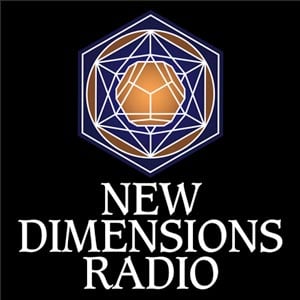Hosted by: Michael Toms
Moss says that there are two basic mistakes we make in this stage of the evolution of consciousness: we identify with our thoughts and we flee from our feelings. He gives specific instructions how to examine our thoughts to identify stories we tell ourselves, and he makes a distinction between feelings and emotions. Moss warns us that if we run away from feelings and link them to thinking, they will turn into emotions. He has a deep understanding of the self-limiting patterns of thought and says, “Emotions are very distinct from feeling. They are, for example, guilt, regret, blame, envy, jealousy, or future fears. These kinds of feelings are what I call emotions; they are created by thinking. If you interrupt thinking, the emotion stops. You cannot have envy without a thought; you cannot have regret without a thought. But you can have the pure feeling of joy without a thought, gratitude without a thought. They are natural feelings.” He encourages us to be radically alive, becoming more available and fully connected with yourself and others. (hosted by Michael Toms)
Richard Moss, M.D. received his doctorate of Medicine in 1972, but after a few years of general practice, a life-changing realization led him to his true calling: the exploration of spiritual awakening and its integration in daily life. For more than three decades Moss has been working intimately with groups, helping people all over the world to touch their deeper essence, thus transforming their lives. He is the author of many books, including The Black Butterfly (Celestial Arts 1987), The Mandala of Being: Discovering the Power of Awareness (New World Library), and Inside-Out Healing: Transforming Your Life Through the Power of Presence (Hay House 2011). To learn more about the work of Richard Moss, M.D. go to www.richardmoss.com.
Topics explored in this dialogue include:
- Why Moss left the practice of medicine
- How the body is literally the center of the experience of being in the now
- What is the difference between feeling and emotion
- What are the four ways your thinking can affect you
- How the negative stories we tell ourselves are a form of physical poison and self abuse
- How every feeling is unique, yet the ego tells you you’ve felt it before
- What is the “muddy me” exercise
- What are the two basic mistakes we make in this stage of evolution of consciousness
- Why we must engage the dark side of feelings, as well as the light
Host: Michael Toms Interview Date: 5/19/2011 Program Number: 3401





